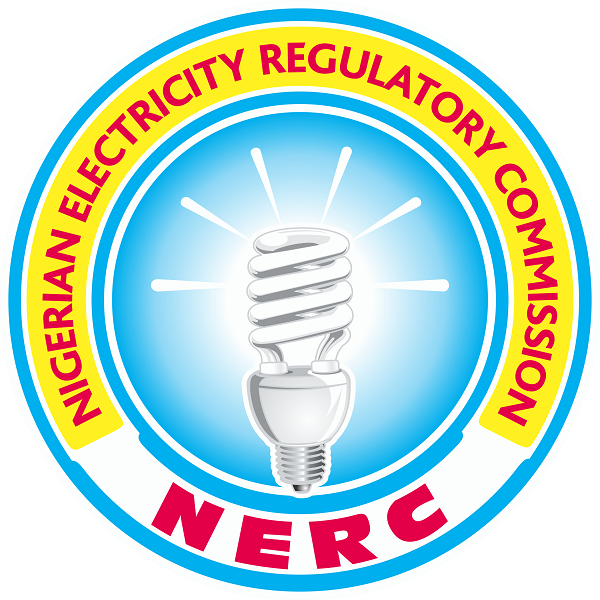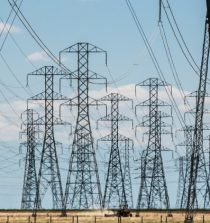By Justina Mboho
Nigeria’s electricity sector records fastest GDP growth in Q2 2021
Electricity – Power grid
Just like every other sector in Nigeria, there are laws that regulate the power sector which involves the generation, transmission and distribution of electricity.
The Nigerian electricity law consists of the body of law, which regulates the generation, transmission, distribution and trading of electricity in Nigeria.
The principal law that regulates electricity in Nigeria is the Electric Power Sector Reform Act 2005 CAP E7, Laws of the Federation of Nigeria 2004 (EPSRA).
This law governs the Nigerian electricity industry including electricity generation, transmission, distribution, trading and supply.
The Act was enacted to cater for the formation of companies to take over the functions, assets, liabilities, and staff of the National Electric Power Authority, to develop competitive electricity markets and also to establish the NERC.
The Act is aimed at enforcing performance standards, it provides for the determination of tariffs and consumer rights protection. It also provides for the licensing requirements to operate in the electricity sector.
The Act was enacted in 2005 with a view to “Create efficient market structures, within clear regulatory frameworks, that encourage more competitive markets for electricity generation and sales (marketing), which, at the same time, are able to attract private investors and ensure economically sound development of the system.’

Section 62 of the Act stipulates that no one can generate, transmit or distribute electricity without a license issued pursuant to this act. The section states that “No person except in accordance with a license issued pursuant to this Act shall construct, own or operate an undertaking other than an undertaking specified in subsection 2 of this Section, or in any way engage in the business of;
electricity generation, excluding captive generation;
electricity transmission;
system operation;
electricity distribution; or
trading in electricity”.
Section 70 of the Act provides for the requirements for licensing to operate in the electricity sector of which NERC is the body responsible for issuing licences.
Nigerian Electricity Regulatory Commission (NERC)
The government agency in Nigeria that regulates electricity is the Nigerian Electricity Regulatory Commission (NERC).
NERC was established by virtue of the EPSRA as an independent regulatory body established to undertake technical and economic regulation of the Nigerian Electricity Supply Industry.
While Section 31 of the EPSRA established the NERC, Section 32 listed the Commission’s principal objectives.
The Commission is saddled with the responsibility of licensing operators, determining operating codes and standards, establishing customer rights and obligations and also to set cost-reflective industry tariffs.
Section 96 of the EPSRA conferred on NERC the powers to make regulations necessary to give effect to the provisions of the EPSRA Act and in performing this function, NERC issued several regulations which gave effect to the provisions of the Act.
Section 96 states that “To make regulations prescribing all matters required or permitted to be prescribed to which in the option of the Commission are necessary or convenient to be prescribed for carrying out or giving effect to the Act”
Regulations issued by NERC
The various regulations issued by NERC include;
•NERC License and Operating Fees Regulation 2010
NERC (Embedded Generation) Regulation 2012
•NERC Regulations for Independent Electricity Distribution Networks (IEDN Regulations) 2012
Regulations on National Content Development for Power Sector 2014
•Regulations for the Investment in Electricity Networks 2015
•NERC Regulation for Mini-Grid 2016
•NERC Eligible Customer Regulation 2017
•NERC Metering Asset Provider (MAP) Regulation 2018 and;
•The Nigerian Electricity Health and Safety Standards Manual.
Other laws that regulate the power sector include: the National Electric Power Policy 2001 and the Nigerian Electricity Management Service Agency Act (NEMSA Act),
The National Electric Power Policy 2001
Prior to the enactment of the EPSRA 2005, there Existed the National Electric Power Policy 2001 which provided the framework for the reform and liberalisation of the Nigerian Electricity Supply Industry (NESI).
The objective of the policy was to ensure that NESI Meets the electricity demand in Nigeria. The policy also laid out a framework that provides for the restructuring of the former state-owned utility.
The Nigerian Electricity Management Service Agency Act (NEMSA Act) 2015
This Act established the Nigerian Electricity Management Agency as the regulatory body responsible for the enforcement of Technical Standards and Regulations, Technical Inspection, Testing and Certification of all categories of Electrical Installations, Electricity Meters and instruments.
This is to ensure efficient production and delivery of safe, reliable and sustainable electric power supply and guarantee the safety of lives and property in the Nigerian Electricity Supply Industry (NESI), and other allied industries/workplaces and premises.
NEMSA is saddled with the responsibility of ensuring that Nigeria has electricity networks that are Stable, Safe, and Reliable.
What you should know
The same law that created the NERC also created the Nigerian Bulk electricity trading company (NBET) and gave room for the creation of the Transmission Company Nigeria (TCN).
The NBET was established in 2010 as a credible off-taker of electric power generation companies.
The Federal Competition Consumer Protection Commission (FCCP) also regulates the power sector because it protects the interest of the consumers and it is responsible for the approval of any merger or acquisition in the power sector.
Source: Nairametrics










Your article helped me a lot, is there any more related content? Thanks!
I don’t think the title of your article matches the content lol. Just kidding, mainly because I had some doubts after reading the article.
They offer international health solutions without borders.
get generic lisinopril tablets
Top 100 Searched Drugs.
Trustworthy and efficient with every international delivery.
lisinopril capsule
Their global outlook is evident in their expansive services.
I always find great deals in their monthly promotions.
cost of generic lisinopril pill
They have an impressive roster of international certifications.
Every visit reaffirms why I choose this pharmacy.
where to buy cheap cipro price
Their health awareness programs are game-changers.